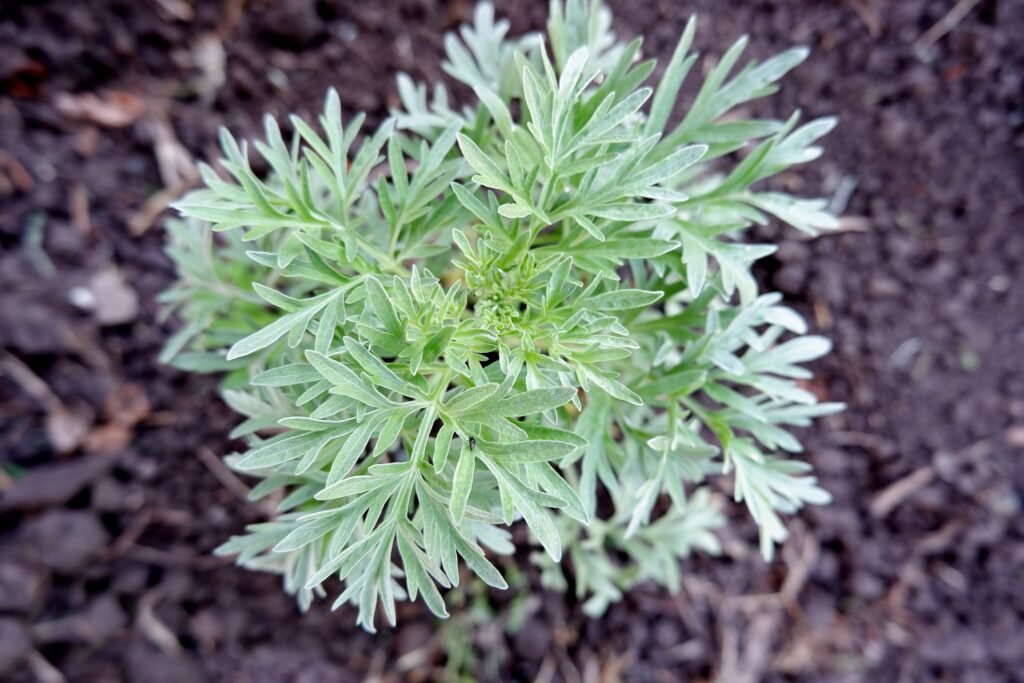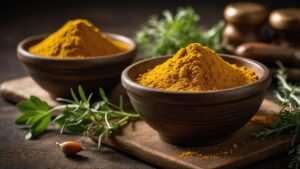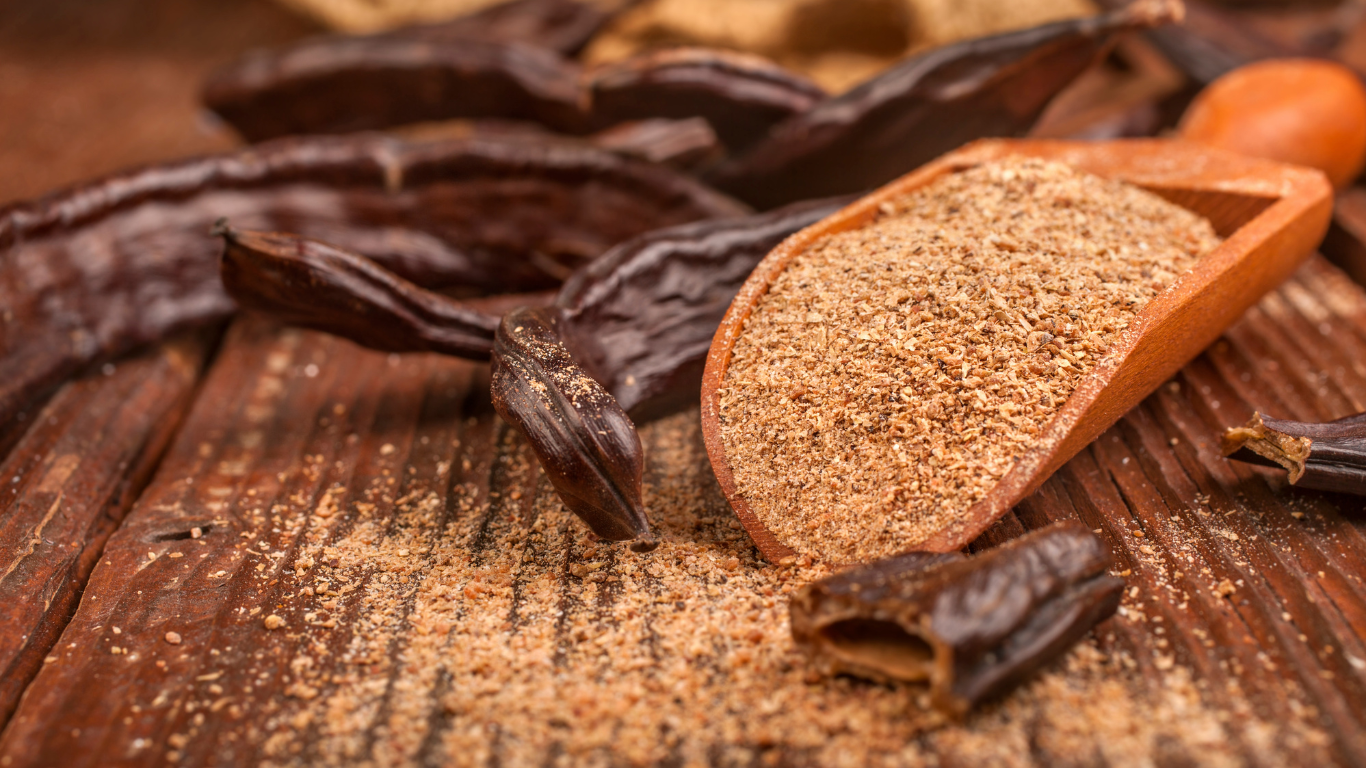If you’ve been exploring natural remedies for gut health, parasite cleansing, or detoxification, you’ve likely come across wormwood. Known for its potent cleansing properties, wormwood has become a popular go-to herb. But what if wormwood isn’t right for you? Maybe you’ve had a sensitivity to it, prefer a milder option, or are simply looking for variety. Fortunately, there are several other herbs that offer similar benefits. These alternatives can support gut health, cleanse the body, and promote overall wellness.
Exploring herbal alternatives to wormwood opens the door to a wider range of natural options for those seeking gut health support and detoxification. Many of these herbs have been used in traditional medicine for centuries, with well-documented benefits. Each herb has its own unique properties, so finding the right one for your needs can enhance your wellness journey. In this article, we’ll take a closer look at five powerful alternatives that can serve as natural replacements for wormwood.
From black walnut’s ability to combat intestinal parasites to neem’s purifying properties, each herb on this list has something special to offer. Whether you’re looking for a gentle option or something stronger, you’ll find a suitable choice here. By the end, you’ll have a better understanding of which alternative fits your specific health goals and how to incorporate it into your wellness routine. Let’s dive into these powerful herbs and how they compare to wormwood.

1. Black Walnut
When it comes to cleansing the gut and supporting digestive health, black walnut is one of the top alternatives to wormwood. This powerful herb comes from the hulls of the black walnut tree, and it has been used for centuries in herbal medicine. Its active compounds, including juglone and tannins, are responsible for its antimicrobial, antifungal, and antiparasitic properties.
Key Benefits of Black Walnut
- Parasite Cleanse: Black walnut hulls are renowned for their ability to expel intestinal parasites, similar to wormwood.
- Antifungal Properties: It helps fight candida and other fungal infections in the gut.
- Digestive Aid: It supports digestion by stimulating bile production, which promotes the breakdown of fats.
How to Use Black Walnut
Black walnut is often taken as a tincture, capsule, or tea. It’s usually combined with other cleansing herbs like clove and wormwood in parasite cleanse protocols. Due to its potency, it’s important to follow recommended dosages, as excessive use may irritate the gut.
2. Clove
If you’ve ever heard of a “parasite cleanse trio,” you know that clove is a major player. Often used alongside wormwood and black walnut, clove stands strong as a solo option for its antimicrobial and parasite-killing benefits. The essential oil found in clove, known as eugenol, is a potent compound that offers a range of health benefits.
Key Benefits of Clove
- Kills Parasite Eggs: Unlike some herbs that only target adult parasites, clove also destroys eggs and larvae.
- Antimicrobial Effects: Clove fights bacteria, fungi, and viruses, making it a comprehensive cleansing agent.
- Relieves Digestive Issues: It soothes bloating, gas, and nausea, making it a great herb for overall gut health.
How to Use Clove
Clove can be taken as a tea, essential oil, or capsule. If using the essential oil, be sure to dilute it properly, as it is highly concentrated. For gut health and parasite cleansing, clove works best when combined with other herbs like black walnut and goldenseal.
3. Goldenseal
Another standout herb on this list is goldenseal, a bright yellow root that has been a staple in Native American herbal medicine. Unlike wormwood, which focuses on parasites, goldenseal excels at fighting bacterial infections and supporting immune health. It contains a powerful compound called berberine, which is responsible for most of its medicinal effects.
Key Benefits of Goldenseal
- Antimicrobial Power: Goldenseal fights bacterial, viral, and fungal infections in the gut and beyond.
- Gut Health Support: It soothes inflamed mucous membranes, promoting healing of the digestive tract.
- Immune Boost: Goldenseal stimulates the immune system, helping the body fight off infections naturally.
How to Use Goldenseal
Goldenseal is most commonly consumed as a tincture or in capsule form. It’s often combined with echinacea during cold and flu season for immune support. For gut health, it works well when paired with black walnut or mugwort for a comprehensive cleanse. Since it’s a strong herb, it’s best used in short-term cycles to avoid overstimulation of the liver.
4. Mugwort
If you’re looking for an herb that’s gentle yet effective, mugwort may be your answer. This herb is often associated with dreamwork, but its effects on digestion and parasites shouldn’t be overlooked. Like wormwood, mugwort contains thujone, which is believed to contribute to its antiparasitic effects.
Key Benefits of Mugwort
- Mild Parasite Cleanse: While not as potent as wormwood, mugwort still helps expel parasites naturally.
- Digestive Tonic: It soothes digestive issues like bloating, gas, and poor appetite.
- Calming Effect: Mugwort has calming effects on the nervous system, which may reduce stress-related gut issues.
How to Use Mugwort
Mugwort is commonly used as a tea or tincture. Since it’s milder than wormwood, it’s a great option for those with sensitive stomachs or who want to avoid stronger herbs. It can also be burned as incense for its relaxing aroma.
5. Neem
For a potent full-body detox, neem is one of the best options. Used in Ayurvedic medicine for thousands of years, neem is known as a “universal healer.” While its bitterness may be off-putting, its benefits far outweigh the taste.
Key Benefits of Neem
- Parasite Cleanser: Neem is effective against intestinal worms, especially when consumed in powdered form.
- Liver Detox: It promotes liver health and enhances the body’s natural detoxification process.
- Skin Health: Its purifying effects help clear up skin issues like eczema and acne.
How to Use Neem
Neem is available as tea, capsules, powder, and even in skincare products. For gut health, it’s most effective as a tea or capsule. Since neem is extremely bitter, capsules are a more palatable option for many people.
When to Use These Alternatives
When choosing an alternative to wormwood, consider your health goals, sensitivity, and preference for potency. Here’s a quick comparison of these herbs:
| Herb | Best For | Strength | Form |
|---|---|---|---|
| Black Walnut | Parasite cleanse | Strong | Tincture, capsule |
| Clove | Parasite eggs, digestion | Strong | Essential oil, tea, capsule |
| Goldenseal | Infections, gut repair | Moderate | Tincture, capsule |
| Mugwort | Gentle cleanse, digestion | Mild | Tea, tincture |
| Neem | Liver detox, parasite cleanse | Strong | Powder, tea, capsule |
This chart can help you decide which herb best fits your wellness needs. If you want to mimic wormwood’s effects, black walnut and clove are strong contenders. For a gentler option, mugwort or neem may be the better choice.
Conclusion
If wormwood isn’t right for you, these five herbs offer similar benefits with unique advantages. Each herb—black walnut, clove, goldenseal, mugwort, and neem—brings something special to the table. From cleansing parasites to supporting liver detox, these natural remedies have been trusted for generations.
Choosing the right herb depends on your goals. Want a potent cleanse? Go for black walnut or clove. Need something gentle? Mugwort is a fantastic option. For infection-fighting power, turn to goldenseal. No matter which herb you choose, you’ll be supporting your gut health and overall wellness naturally.
Ready to explore your options? Start with one herb at a time and listen to how your body responds. These herbal alternatives to wormwood offer a path to natural healing and balanced health. If you’d like to learn more about how to use these herbs, browse our other guides on natural cleansing and detoxification.









